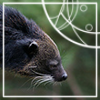CSSC: Chicken Smoothie Science Club
Re: CSSC: Chicken Smoothie Science Club
Welcome to the club!
.
.
.
.
.
.
.
.
.
.
.
.
.
.
.
.
.
.
.
.
.
.
.
.
.
.
.
.
.
.
.
.
.
.
.
.
.
.
.
.
.
.
.
.
.
.
.
.
.
.
.
.
.
.
.
.
.
.
.
.
.
.
.
.
.
.
.
.
.
.
.
.
.
.
.
.
.
.
.
.
.
.
.
.
.
.
.
.
.
.
Toxi's Box wrote:❝News❞
❝June 16, 2019
Big oof ya know.
Much love. ❤❞
❝CS Pet❞
❝Links to Click❞
● Fursona and Characters ●
Bbun's Box wrote:❝News❞
❝Bit inactive but still always checking!❞
❝CS Pet❞
❝Links to Click❞
● Pony Characters ● Pet Adoptables ●
This account is shared by two people.
{Bbun types normally.}
[Toxi signs, centers, and smalls her posts.]
~Thanks to Twilight Sparkle for our avatar!~
~Thanks to dizzy blossoms. for our siggy!~
{Bbun types normally.}
[Toxi signs, centers, and smalls her posts.]
~Thanks to Twilight Sparkle for our avatar!~
~Thanks to dizzy blossoms. for our siggy!~
-

Toxi+Bbun - Posts: 12856
- Joined: Mon Dec 20, 2010 1:04 pm
- My pets
- My items
- My wishlist
- My gallery
- My scenes
- My dressups
- Trade with me
Re: CSSC: Chicken Smoothie Science Club
Ooh, a science club...I rather like that idea. :P I'll probably be hanging around here, but I might not post often, as I don't have an extensive knowledge in science and more than likely won't know nearly as much as you guys. XD
To answer the question of favorite scientific discovery and scientist:
I have a particular fascination and liking of genetics, so I'm a bit biased in saying that my favorite scientist is Gregor Mendel and my favorite discovery was his. XD
To answer the question of favorite scientific discovery and scientist:
I have a particular fascination and liking of genetics, so I'm a bit biased in saying that my favorite scientist is Gregor Mendel and my favorite discovery was his. XD
Last edited by Gene on Sun Apr 24, 2011 2:52 pm, edited 2 times in total.
-

Gene - Posts: 3639
- Joined: Sat May 15, 2010 2:06 pm
- My pets
- My items
- My wishlist
- My gallery
- My scenes
- My dressups
- Trade with me
Re: CSSC: Chicken Smoothie Science Club
18-18 wrote:Ooh, a science club...I rather like that idea.I'll probably be hanging around here, but I might not post often, as I don't have an extensive knowledge in science and more than likely won't know nearly as much as you guys. XD
To answer the question of favorite scientific discovery and scientist:
I have a particular fascination and liking of genetics, so I'm a bit biased in saying that my favorite scientist is Gregor Mendel and my favorite discovery was his. XD
Welcome! I don't have much knowledge in science either. I just like the subject and I like my questions answered!
~~~~
I have another question for you all!
How come when I look at a light, and then look away, "blue spots" are still there?
Sorry if that isn't clear.
.
.
.
.
.
.
.
.
.
.
.
.
.
.
.
.
.
.
.
.
.
.
.
.
.
.
.
.
.
.
.
.
.
.
.
.
.
.
.
.
.
.
.
.
.
.
.
.
.
.
.
.
.
.
.
.
.
.
.
.
.
.
.
.
.
.
.
.
.
.
.
.
.
.
.
.
.
.
.
.
.
.
.
.
.
.
.
.
.
.
Toxi's Box wrote:❝News❞
❝June 16, 2019
Big oof ya know.
Much love. ❤❞
❝CS Pet❞
❝Links to Click❞
● Fursona and Characters ●
Bbun's Box wrote:❝News❞
❝Bit inactive but still always checking!❞
❝CS Pet❞
❝Links to Click❞
● Pony Characters ● Pet Adoptables ●
This account is shared by two people.
{Bbun types normally.}
[Toxi signs, centers, and smalls her posts.]
~Thanks to Twilight Sparkle for our avatar!~
~Thanks to dizzy blossoms. for our siggy!~
{Bbun types normally.}
[Toxi signs, centers, and smalls her posts.]
~Thanks to Twilight Sparkle for our avatar!~
~Thanks to dizzy blossoms. for our siggy!~
-

Toxi+Bbun - Posts: 12856
- Joined: Mon Dec 20, 2010 1:04 pm
- My pets
- My items
- My wishlist
- My gallery
- My scenes
- My dressups
- Trade with me
Re: CSSC: Chicken Smoothie Science Club
If you look into a bright light and then away you normally experience an afterimage, a negative one with the complementary colours to the colour of the light source (or image). If you look at a green light, you'll see a reddish (magenta) afterimage and vice versa. When you see a blue spot the light source was yelllowish 
It is an effect of the retina, in which there are the photoreceptors for colour-information, the cone cells, and for scotopic and peripheral vision there are rod cells. You have cone cells for red, blue and green, corresponding to different wavelengths of light.
When you stare at a lit area or a light source, those photoreceptors (I really wish I could explain it in German... *use dictionairy excessively*) will start firing signals due to the wavelength of the light necessary to trigger a reaction. The brain is able to 'calculate' all colours from the mixture of signals it receives from the cone cells, since the cone cells experience a different amount of stimulation and fire signals accordingly. Normally we move our eyes constantly (very small movements, the physiological nystagmus) to avoid the cone cells to get 'exhausted', which means that the sensitivity to light of a certain wavelength reduces for a short period of time.
So if you look at a yellow light for 30 seconds or longer the cone cells for red and green get stimulated a lot, but the cone cells for blue aren't. If you then look away the cone cells for red and green are 'exhausted' and are less sensitive and fire at a lower rate or not at all anymore than the not-exhausted cone cells for blue in that particular area of the retina. The brain only receives the information for 'blue' and you see a blue afterimage of what you were looking at.
If that is somehow understandable <.<
It is an effect of the retina, in which there are the photoreceptors for colour-information, the cone cells, and for scotopic and peripheral vision there are rod cells. You have cone cells for red, blue and green, corresponding to different wavelengths of light.
When you stare at a lit area or a light source, those photoreceptors (I really wish I could explain it in German... *use dictionairy excessively*) will start firing signals due to the wavelength of the light necessary to trigger a reaction. The brain is able to 'calculate' all colours from the mixture of signals it receives from the cone cells, since the cone cells experience a different amount of stimulation and fire signals accordingly. Normally we move our eyes constantly (very small movements, the physiological nystagmus) to avoid the cone cells to get 'exhausted', which means that the sensitivity to light of a certain wavelength reduces for a short period of time.
So if you look at a yellow light for 30 seconds or longer the cone cells for red and green get stimulated a lot, but the cone cells for blue aren't. If you then look away the cone cells for red and green are 'exhausted' and are less sensitive and fire at a lower rate or not at all anymore than the not-exhausted cone cells for blue in that particular area of the retina. The brain only receives the information for 'blue' and you see a blue afterimage of what you were looking at.
If that is somehow understandable <.<
Nobiskrug - Letters from the Purgatory ~•~ You need help? Click here!
Free Online Storage - Get more now with Dropquest 2012!


Free Online Storage - Get more now with Dropquest 2012!
This signature needs more flavour of rainbow-coloured warrior.
~•~
I am a spiritual hobo!
~•~
I am a spiritual hobo!


-

Khisa - Posts: 3172
- Joined: Thu Mar 19, 2009 3:28 am
- My pets
- My items
- My wishlist
- My gallery
- My scenes
- My dressups
- Trade with me
Re: CSSC: Chicken Smoothie Science Club
Nociception wrote:So, idk rly [it's not really any of my favorite or strong areas at all] and wondered if any of you guys has ideas. :D How do we identify potential biological control agents [animals; herbivores] for weeds?
Cut 'em up and see if they've eaten the weeds?
AHAHAH I AM TURNING INTO A SCALPEL-JOCKEY. But that's how you work out if herbivores have eaten toxic plants, so it'd probably translate. I'm sure you could identify bits of plant matter in faecal samples too, which is better if you're working with a potential endangered species (or just something you didn't want to kill).
That's only if the animal is in the area where the weed is...is this a 'let's introduce this animal to control this weed that's out of control' situation? Because I'm sure that would work if enough research was done, but you have to take into account whether they can and want to eat the weed if it was there and if they'd just not bother and go and eat something else that was easier (like cane toads :/). You also wouldn't want them to outcompete or kill existing animals. Going right back to square one you'd have to identify animals that wouldn't be turned off (some animals are really fussy about tastes and textures) or killed by the weed in the first place, which is behaviour and physiology stuff that you'd need to know the animal's normal diet for...and then you'd have to factor in whether or not they actually kill the plant or just eat the leaves (cows are not good for weed control because they don't pull up roots, but things like rabbits destroy root systems).
LOTS TO THINK ABOUT :P
..


..
..
scarf + luth
.[nerdthing + treething]
there's something you'd better understand about me,
'cause it's important and one day your life may depend on it
- I am definitely a mad man with a box -
..
..

scarf + luth
.[nerdthing + treething]
there's something you'd better understand about me,
'cause it's important and one day your life may depend on it
- I am definitely a mad man with a box -
..

-

Scarf - Posts: 1897
- Joined: Fri Mar 05, 2010 7:18 pm
- My pets
- My items
- My wishlist
- My gallery
- My scenes
- My dressups
- Trade with me
Re: CSSC: Chicken Smoothie Science Club
Scarf wrote:Nociception wrote:So, idk rly [it's not really any of my favorite or strong areas at all] and wondered if any of you guys has ideas.How do we identify potential biological control agents [animals; herbivores] for weeds?
Cut 'em up and see if they've eaten the weeds?
AHAHAH I AM TURNING INTO A SCALPEL-JOCKEY. But that's how you work out if herbivores have eaten toxic plants, so it'd probably translate. I'm sure you could identify bits of plant matter in faecal samples too, which is better if you're working with a potential endangered species (or just something you didn't want to kill).
That's only if the animal is in the area where the weed is...is this a 'let's introduce this animal to control this weed that's out of control' situation? Because I'm sure that would work if enough research was done, but you have to take into account whether they can and want to eat the weed if it was there and if they'd just not bother and go and eat something else that was easier (like cane toads). You also wouldn't want them to outcompete or kill existing animals. Going right back to square one you'd have to identify animals that wouldn't be turned off (some animals are really fussy about tastes and textures) or killed by the weed in the first place, which is behaviour and physiology stuff that you'd need to know the animal's normal diet for...and then you'd have to factor in whether or not they actually kill the plant or just eat the leaves (cows are not good for weed control because they don't pull up roots, but things like rabbits destroy root systems).
LOTS TO THINK ABOUT
Like Scarf points out, more information would be needed to really answer that, since it depends on what you're looking for. Are you wanting native animals already in an area that could help control an invasive weed, choosing an introduced biological control organism (bugs are awesome for that, by the way) from the critters already known to eat/kill the weed, looking for a specific type of biological control (e.g. large herbivores rather than insects), or trying to find anything that will actually eat/kill a plant that nothing seems to like? I've done a tad of work on biological control agents (wasps and beetles mostly), so I've had a bit of experience with identifying agents. :3
-

Atwood - Posts: 10541
- Joined: Wed Mar 25, 2009 5:08 pm
- My pets
- My items
- My wishlist
- My gallery
- My scenes
- My dressups
- Trade with me
Re: CSSC: Chicken Smoothie Science Club
Hmm, I can see your problem there. XD Well, for the characteristics I'd look for in a potential control agent, I'd say:
Selectivity - the critter needs to only target the weed you want it to, so if it's something that eats everything, it's no good.
Specificity - obviously, it needs to eat or attack the target weed preferentially. It's not unheard of for a biological control agent to decide that it likes some native plant better than the weeds, so cage tests in the field with the native plants plus the weed are very important.
Efficacy - the agent needs to actually impact the weed in a speedy effective manner, such as killing it, severely inhibiting its growth, or preventing it from spreading. Root borers have a good success rate, as do things that feed on the weed's reproductive system, like its budding stems. However, agents that act solely on seeds are often ineffective, as weeds usually produce so many seeds that even a massive reduction in seed numbers leaves enough successful seedlings to maintain the population or produce only a very gradual decline.
Short life cycle - less important, but you want your control agents to get out there and spread as fast as possible to hit the weeds hard and fast, so if they can reproduce very rapidly, all the better. It also often makes them easier to remove from the ecosystem later on if needed, since the introduced population might die out once it's eaten all of the target weeds.
Rare or foreign to the weed - more of a 'hey, this might be a factor' thing, but if the agent is something that the plant is regularly exposed to in its native habitat, it's more likely that the weed will have adapted to resist it, but it is less likely to have resistance to rarer pests or ones to which it has never been exposed. This leaves the plant open to being devastated by the agent, provided the agent has the means to attack the plant successfully.
The biological control of diffuse knapweed is a great case study for that. The agents that targetted the knapweed seeds greatly reduced seed production but had no actual impact on the density of the plants, but the root feeders and bud-eaters did reduce density. Here's an article that sums up some of the biological control results for knapweed, with a focus on the Larinus minutus weevil that attacks the knapweed's foliage and flower buds to great effect: http://culter.colorado.edu:1030/~tims/Myers09.pdf
Selectivity - the critter needs to only target the weed you want it to, so if it's something that eats everything, it's no good.
Specificity - obviously, it needs to eat or attack the target weed preferentially. It's not unheard of for a biological control agent to decide that it likes some native plant better than the weeds, so cage tests in the field with the native plants plus the weed are very important.
Efficacy - the agent needs to actually impact the weed in a speedy effective manner, such as killing it, severely inhibiting its growth, or preventing it from spreading. Root borers have a good success rate, as do things that feed on the weed's reproductive system, like its budding stems. However, agents that act solely on seeds are often ineffective, as weeds usually produce so many seeds that even a massive reduction in seed numbers leaves enough successful seedlings to maintain the population or produce only a very gradual decline.
Short life cycle - less important, but you want your control agents to get out there and spread as fast as possible to hit the weeds hard and fast, so if they can reproduce very rapidly, all the better. It also often makes them easier to remove from the ecosystem later on if needed, since the introduced population might die out once it's eaten all of the target weeds.
Rare or foreign to the weed - more of a 'hey, this might be a factor' thing, but if the agent is something that the plant is regularly exposed to in its native habitat, it's more likely that the weed will have adapted to resist it, but it is less likely to have resistance to rarer pests or ones to which it has never been exposed. This leaves the plant open to being devastated by the agent, provided the agent has the means to attack the plant successfully.
The biological control of diffuse knapweed is a great case study for that. The agents that targetted the knapweed seeds greatly reduced seed production but had no actual impact on the density of the plants, but the root feeders and bud-eaters did reduce density. Here's an article that sums up some of the biological control results for knapweed, with a focus on the Larinus minutus weevil that attacks the knapweed's foliage and flower buds to great effect: http://culter.colorado.edu:1030/~tims/Myers09.pdf
-

Atwood - Posts: 10541
- Joined: Wed Mar 25, 2009 5:08 pm
- My pets
- My items
- My wishlist
- My gallery
- My scenes
- My dressups
- Trade with me
Re: CSSC: Chicken Smoothie Science Club
Thanks, guys. I don't want to interrupt your discussion about vegetation control, I just wanted to link to some sad news. SETI lacks funds and shuts down its dishes. 
Edit: Wow, that does not sound very safe. At least Fukushima needed a horrible earthquake and resulting tsunami to be shut down. Not... grass. Maybe there's really a desperate need for vegetation control in the end.
Edit: Wow, that does not sound very safe. At least Fukushima needed a horrible earthquake and resulting tsunami to be shut down. Not... grass. Maybe there's really a desperate need for vegetation control in the end.
Nobiskrug - Letters from the Purgatory ~•~ You need help? Click here!
Free Online Storage - Get more now with Dropquest 2012!


Free Online Storage - Get more now with Dropquest 2012!
This signature needs more flavour of rainbow-coloured warrior.
~•~
I am a spiritual hobo!
~•~
I am a spiritual hobo!


-

Khisa - Posts: 3172
- Joined: Thu Mar 19, 2009 3:28 am
- My pets
- My items
- My wishlist
- My gallery
- My scenes
- My dressups
- Trade with me
Re: CSSC: Chicken Smoothie Science Club
Khisa wrote: I just wanted to link to some sad news. SETI lacks funds and shuts down its dishes.
That is unfortunate. I never really participated in SETI, but I always like the idea, even if it is unlikely to succeed. I didn't realise they owned satellite dishes though. I'm sure they have already considered it/ do it already, but it would make sense to hire them out to other astronomers to search for whatever they want, and use that money to self-fund some of the SETI work, but I'm sure that has already been considered lol
Nociception wrote:"Can we identify characteristics of herbivores that might pre-adpat them to being suitable candidates as control agents?
How do we identify potential biological control agents for weeds?
In what circumstances might a herbivore become a succcessful biological control agent?"
This, and the suggestions, have been very interesting to read through (as was the information about the light receptors
I was trying to think of something interesting to post for people to read, but unfortunately today's revision just seems to have compressed my brain with information, rather than have it absorb it like its meant to
But any questions on Quantum Field Theory, fire away.
Any questions on Advanced Particle Physics...they might have to wait awhile til my mind recovers.
Your UI | seems to make its home | on the plane where Heisenberg and Schrödinger | first trespassed\\ |
Your accidental Intelligence | appears not only to be the gluon | but the glue\\ |
Not a watchmaker | but a sort of Feynman gardener | tidying up a no-boundary universe | with his crude sum-over-histories rake/ | idly keeping track of every sparrow fall | and electron spin | while allowing each particle | to follow every possible | track | in space-time | and each particle of humankind | to explore every possible | crack | of cosmic irony |
Your accidental Intelligence | appears not only to be the gluon | but the glue\\ |
Not a watchmaker | but a sort of Feynman gardener | tidying up a no-boundary universe | with his crude sum-over-histories rake/ | idly keeping track of every sparrow fall | and electron spin | while allowing each particle | to follow every possible | track | in space-time | and each particle of humankind | to explore every possible | crack | of cosmic irony |
-

Autochthon Scion - Posts: 34
- Joined: Thu Jun 03, 2010 4:39 am
- My pets
- My items
- My wishlist
- My gallery
- My scenes
- My dressups
- Trade with me
Re: CSSC: Chicken Smoothie Science Club
Hi guys!
Khisa, I was reading about SETI yesterday and was absolutely devestated. They have that Kepler mission going on right now finding planets - the logical thing would be to look at those star systems to see if they have any signals coming from them. Where NASA's had to pull out of LISA too, which means we're stuck with LISA-pathfinder. I am seriously worried now that NASA funding's going to be cut from elsewhere, and probably stuff I'm going to rely on should I get the PhD position (hate having to clarify everything with 'touch wood' at the moment). Aksdkapowk it's weird when something goes from 'oh no that's a shame' to 'holy macaroni my life could be affected'.
Also Auto, I still don't understand what your siggy is about and it's bugging me. Eta's usually used for efficiency, so is it some kind of energy acceptance thing? I could cheat but I refuse to xD.
To get some discussion going, I pose a new question for those budding scientists to answer (feel free to post your own btw :3)
If you had unlimited funds (and people to help), what would you research or perform experiments on? As sensible or whacky as you like ;'D
Khisa, I was reading about SETI yesterday and was absolutely devestated. They have that Kepler mission going on right now finding planets - the logical thing would be to look at those star systems to see if they have any signals coming from them. Where NASA's had to pull out of LISA too, which means we're stuck with LISA-pathfinder. I am seriously worried now that NASA funding's going to be cut from elsewhere, and probably stuff I'm going to rely on should I get the PhD position (hate having to clarify everything with 'touch wood' at the moment). Aksdkapowk it's weird when something goes from 'oh no that's a shame' to 'holy macaroni my life could be affected'.
Also Auto, I still don't understand what your siggy is about and it's bugging me. Eta's usually used for efficiency, so is it some kind of energy acceptance thing? I could cheat but I refuse to xD.
To get some discussion going, I pose a new question for those budding scientists to answer (feel free to post your own btw :3)
If you had unlimited funds (and people to help), what would you research or perform experiments on? As sensible or whacky as you like ;'D
-

Seraphwolf - Posts: 885
- Joined: Thu Apr 15, 2010 10:18 am
- My pets
- My items
- My wishlist
- My gallery
- My scenes
- My dressups
- Trade with me
Who is online
Users browsing this forum: No registered users and 8 guests












